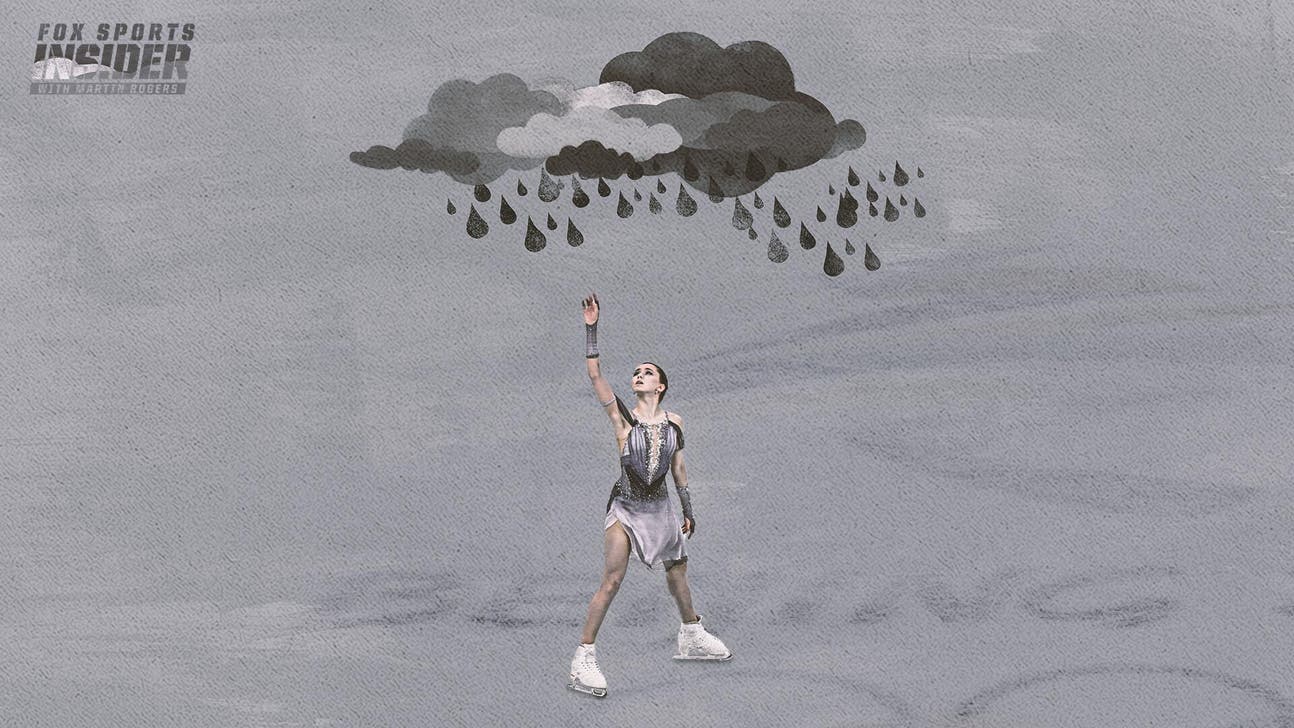
Olympic figure skating continues under cloud of suspicion
By Martin Rogers
FOX Sports Columnist
Welcome to figure skating, where the saddest gold medal of these Winter Olympics will be competed for in the early hours of Thursday but won’t actually be presented to the champion* — not yet, at least.
Where the most talked about athlete of the Games is expected to deliver the most detailed and accomplished technical performance in the history of her sport, but the commentators, if form holds, will utter barely a word about it.
Where everyone who tunes in to the women’s long program will be doing so to see one athlete, Kamila Valieva, but where the overwhelming majority of them will be hoping she loses, which in itself is monumentally unlikely due to the complicated judging system.
Where Valieva, a Russian 15-year-old, will compete not for Russia but for the Russian Olympic Committee, a clumsy workaround that purports to punish that country for its prior, state-sponsored doping transgressions. But doesn’t, really.
And where that same teenager finds herself at the center of a new doping scandal that turns the stomach, where all kinds of elaborate excuses are being put forward to try to make us not believe what now seems horribly likely: that someone gave a kid geriatric heart medications to help her train better, or longer, or something.
Thursday’s display will be a performance in which even if Valieva wins, she doesn’t. Ever since the results of her positive doping test were revealed over the weekend, this has been a news story that plays out internationally as more evidence of Russia’s maniacal pursuit of success and total disregard for the rules.
It plays out in Russia as Western jealousy and overreaction, all aimed to deny a young athlete a triumph she deserves.
Figure skating is no stranger to outrageous storylines. It's a strange sport that has a massive global reach few others can match — but only once every four years at Olympic time.
When the extraordinary Tonya Harding and Nancy Kerrigan furor exploded three decades ago, it produced one of the highest-rated broadcasts in American television history. You can work out why. We’re human, and controversy is like catnip.
Valieva actually tested positive before the Olympics, from a sample given at the Russian national championships. Yet for some mystifying reason, the result came to light only in the wake of the Olympic team competition last week. The medals for that event — Russia won gold easily, with the United States a distant second — still have not been given out.
The reason is obvious. If, after an investigation is complete, Valieva and her team are disqualified, the Americans will be upgraded to gold, Japan to silver and Canada to bronze. The International Olympic Committee wants to avoid the visual of a drug cheat wearing a gold medal that is later removed. Photos live forever.
That’s why there will be no ceremony after the women’s event and why a 25th skater was added to the program when the free skate typically permits only 24.
Yet if Valieva failed a test, and the IOC is already bracing itself for her disqualification, why is she competing at all? That’s the question confounding those who follow the sport closely, and it should puzzle the rest of us, too.
"It was a remarkable few hours at these Olympic Games," Christine Brennan wrote in USA TODAY. "What a devastatingly awful message this is to the Russians: Keep doping, especially your minor athletes. You’ll get away with it on a technicality every time. The Olympic Games lost today. Clean sport lost. Cheating won. Russia’s state-sponsored doping system won. The bad guys won."
When Valieva competed in the short program Tuesday, NBC’s commentary team of Tara Lipinski and Johnny Weir stayed mostly silent and gave only brief technical notes. At the end, Weir showed exactly what he thought of Valieva being allowed to perform.
"All I feel like I can say is that was the short program of Kamila Valieva at the Olympics," Weir said.
"She had a positive test," Lipinski added. "We should not have seen this skate."
Despite stumbling on her opening jump, Valieva placed first in the short program, with a score of 82.16. She is a huge favorite going into the free skate. The nature of figure skating judging rewards the routines with the highest level of difficulty. Add in a quad jump that only a few skaters can do, and it's nearly impossible to be caught.
The quad is an incredibly difficult move, and Valieva is one of the first female athletes to be able to do it with regularity. All the athletes to pull one off in competition have been in their teens.
Valieva’s coach, Eteri Tutberidze, has a specific method. The athletes she takes on are pushed to the limit at a young age, brought rapidly to the top with a series of high-impact, body-contorting, showpiece moves, then replaced with a new crop as the next Olympic cycle begins
There is a desperately heart-aching element to all. Valieva is 15. It is a heck of a stretch to think that if she doped to improve her performance, she was the mastermind behind it.
"She’s pretty much the product of the adults around her," Alexia Paganini, competing for Switzerland, told reporters.
Valieva is a brilliant athlete and the product of a system, capable of skating at a level no one before her has ever managed. But at what cost?
Who knows what long-term effects heart meds have when given to a 15-year-old who doesn’t need them?
Valieva became one of the most famous athletes in the world this past week, but not in a way anyone would have chosen. She’s embroiled in a controversy that has overshadowed the rest of the Olympics.
She’ll have to take to the ice under a cloud of suspicion and a whirlwind of conjecture, performing for a medal she might never see. Aiming for a victory that, no matter what happens now, will come with an asterisk.
Martin Rogers is a columnist for FOX Sports and the author of the FOX Sports Insider Newsletter. You can subscribe to the newsletter here.
